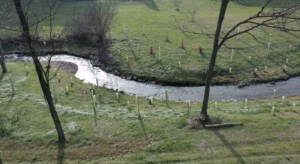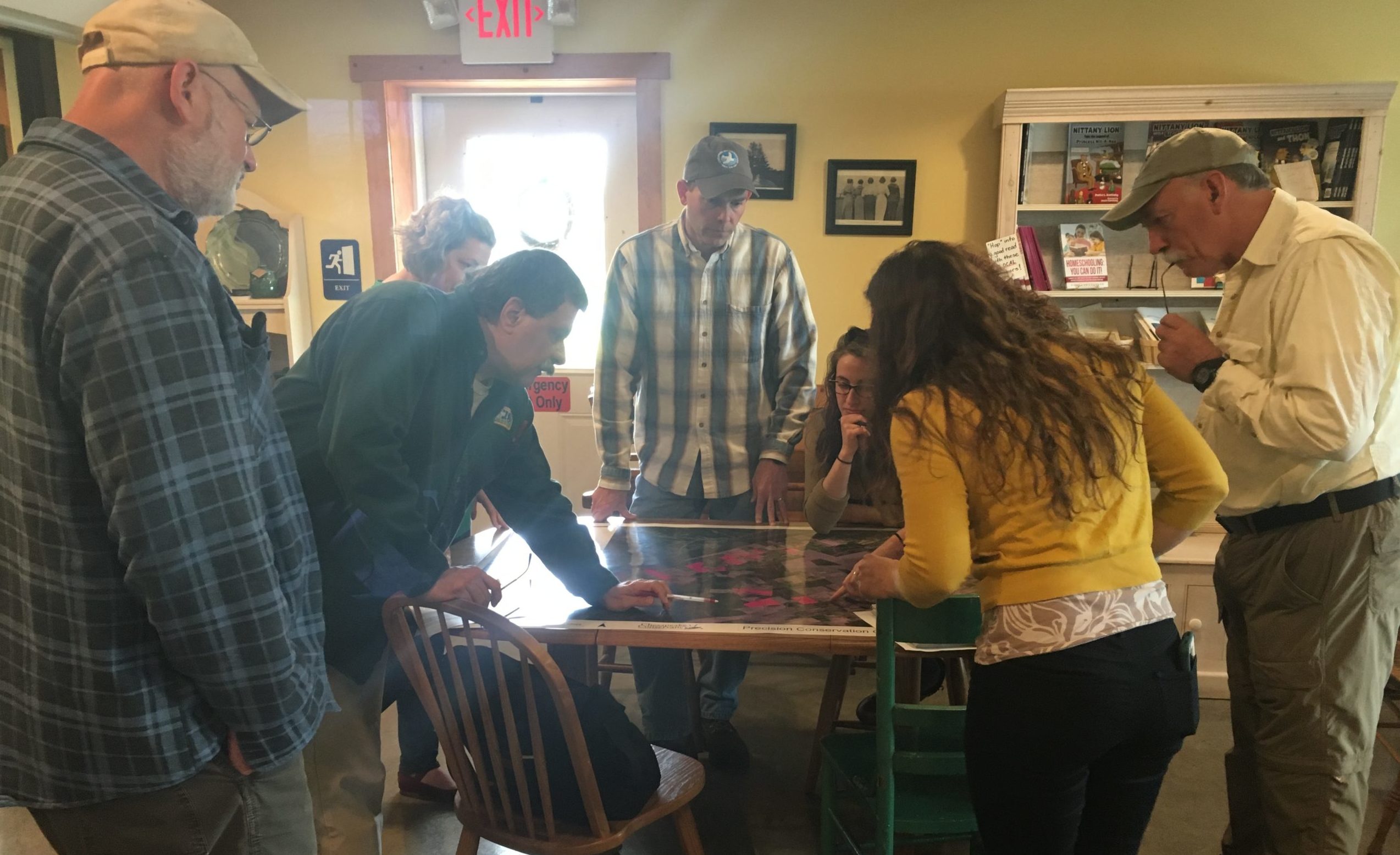Pennsylvania ‘30 x 30’ Stream Restoration Goal
 Chesapeake Conservancy, along with many community partners, has a goal to restore the health of 30 streams by 2030 in the Commonwealth of Pennsylvania. These streams, designated as “agriculturally-impaired” on Pennsylvania’s list of impaired waters will be restored using a new and innovative strategy called “rapid stream delisting.” Rapid stream delisting couples cutting-edge mapping data analysis with an extensive partnership effort to align limited resources toward delisting streams on an accelerated timeframe. Partners include the PA Departments of Environmental Protection (DEP) and Conservation and Natural Resources (DCNR), seven county conservation districts, as well as the dozens of nonprofits, research institutions, and local, federal, and state agencies involved with central PA Precision Conservation Partnership, Lancaster Clean Water Partners, and the Live Stake Collaborative. Together, this partnership reflects a community-based effort to reduce pollution and sediment in Pennsylvania streams and provide healthy habitats for fish and wildlife, outdoor recreation, and better water quality for local communities. The effort directly supports agricultural landowners seeking to restore local streams near their land.
Chesapeake Conservancy, along with many community partners, has a goal to restore the health of 30 streams by 2030 in the Commonwealth of Pennsylvania. These streams, designated as “agriculturally-impaired” on Pennsylvania’s list of impaired waters will be restored using a new and innovative strategy called “rapid stream delisting.” Rapid stream delisting couples cutting-edge mapping data analysis with an extensive partnership effort to align limited resources toward delisting streams on an accelerated timeframe. Partners include the PA Departments of Environmental Protection (DEP) and Conservation and Natural Resources (DCNR), seven county conservation districts, as well as the dozens of nonprofits, research institutions, and local, federal, and state agencies involved with central PA Precision Conservation Partnership, Lancaster Clean Water Partners, and the Live Stake Collaborative. Together, this partnership reflects a community-based effort to reduce pollution and sediment in Pennsylvania streams and provide healthy habitats for fish and wildlife, outdoor recreation, and better water quality for local communities. The effort directly supports agricultural landowners seeking to restore local streams near their land.
To learn more, please email Carly Dean at [email protected].

This material is based on work supported by the U.S. Environmental Protection Agency and the Chesapeake Bay Program’s Innovative Nutrient and Sediment Reduction grants program, which supports efforts in the Chesapeake Bay watershed to accelerate nutrient and sediment reductions with innovative, sustainable, and cost-effective approaches.
Additional funding for Chesapeake Conservancy’s precision conservation efforts was generously provided through initial seed investments and programmatic grants from: Bunting Family Foundation, The Keith Campbell Foundation for the Environment, The 1994 Charles B. Degenstein Foundation, Foundation for Pennsylvania Watersheds, Hamer Foundation, Lancaster Clean Water Partners, Natural Resources Conservation Service Conservation Collaboration Grant Program, Pennsylvania Department of Conservation and Natural Resources, and Pennsylvania Department of Environmental Protection.